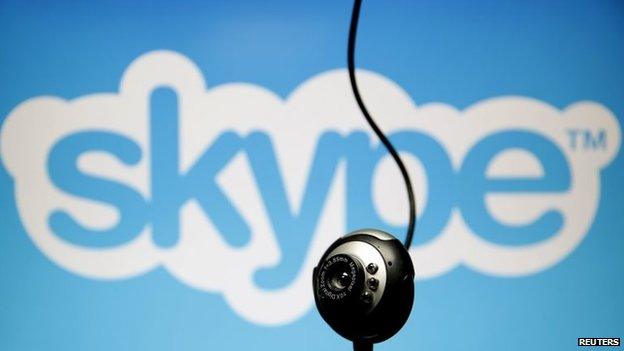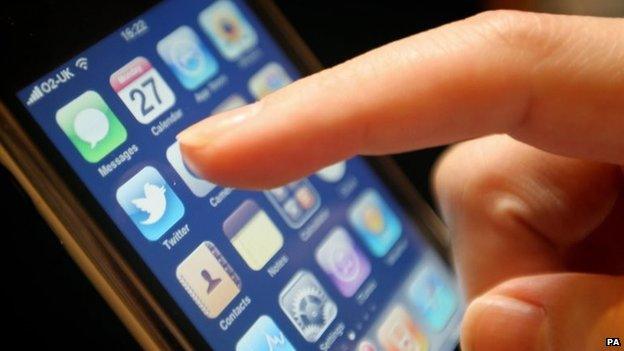Islamic State web accounts to be blocked by new police team
- Published

Direct recruitment for IS often takes place on Skype, one expert on jihadis said
A Europe-wide police team is being formed to track and block social media accounts linked to Islamic State (IS).
A recent US study found there were at least 46,000 accounts on Twitter linked to the militant group, many of which help to recruit new IS members.
The European police agency Europol will now work with unnamed social media companies to track the accounts.
They aim to get new accounts closed down within two hours of them being set up.
Europol believes up to 5,000 EU citizens, including people from the UK, France, Belgium and the Netherlands, have travelled to territories controlled by IS.
Rob Wainwright, Europol's director, told the BBC that the new team, which starts its work on 1 July, "would be an effective way of combating the problem".
But, he said, tracking all IS-linked social media accounts was too big a task.
"We will have to combine what we see online, with our own intelligence and that is shared with us by European police services, so we can be a bit more targeted and identify who the key user accounts are... and concentrate on closing them down."


Analysis - Dominic Casciani, BBC Home Affairs Correspondent
Islamic State's propaganda machine is a child of the internet age - always available somewhere, always being shared by someone, always online.
IS uses "official" accounts controlled and operated from within Syria and Iraq and a huge network of supporters and propagandists further afield. Every tweet, video and sermon is shared and magnified in a way that is exceptionally difficult to track and stop.
Can this material be taken down? All the evidence, so far, says no. Some IS supporters dodge law enforcement deliberately, deleting their own accounts and creating new ones before police can catch up.
Some social media services don't have the capacity to respond - although critics say the biggest services are failing to at least try harder to remove extremist material.
So the question is this - if you want to stop IS online, can it be done without changing the nature of the net?

The number of IS-linked Twitter accounts could be as high as 90,000, external, according to a paper by the Brooking Institution in Washington.
Aaron Zelin, an expert on jihadist groups at the Washington Institute for Near East Policy, says Twitter is generally used to draw in potential new recruits, not to directly hire them.
The more direct recruitment conversations take place on forums such as Skype, WhatsApp and Kik, he said.
Rita Katz, a director of the jihadi monitoring group Site, said IS militants regularly boasted online of ways in which to circumvent being blocked on social media.
In an article written in April, Ms Katz called for better security by social media firms, external and said simply blocking accounts was not enough.
She wrote: "It's time to stop shooting in the dark and recognize IS and its followers on Twitter are determined and dangerously adaptive - not because they enjoy tweeting, but because Twitter itself is among the most crucial tools to their growth and existence."